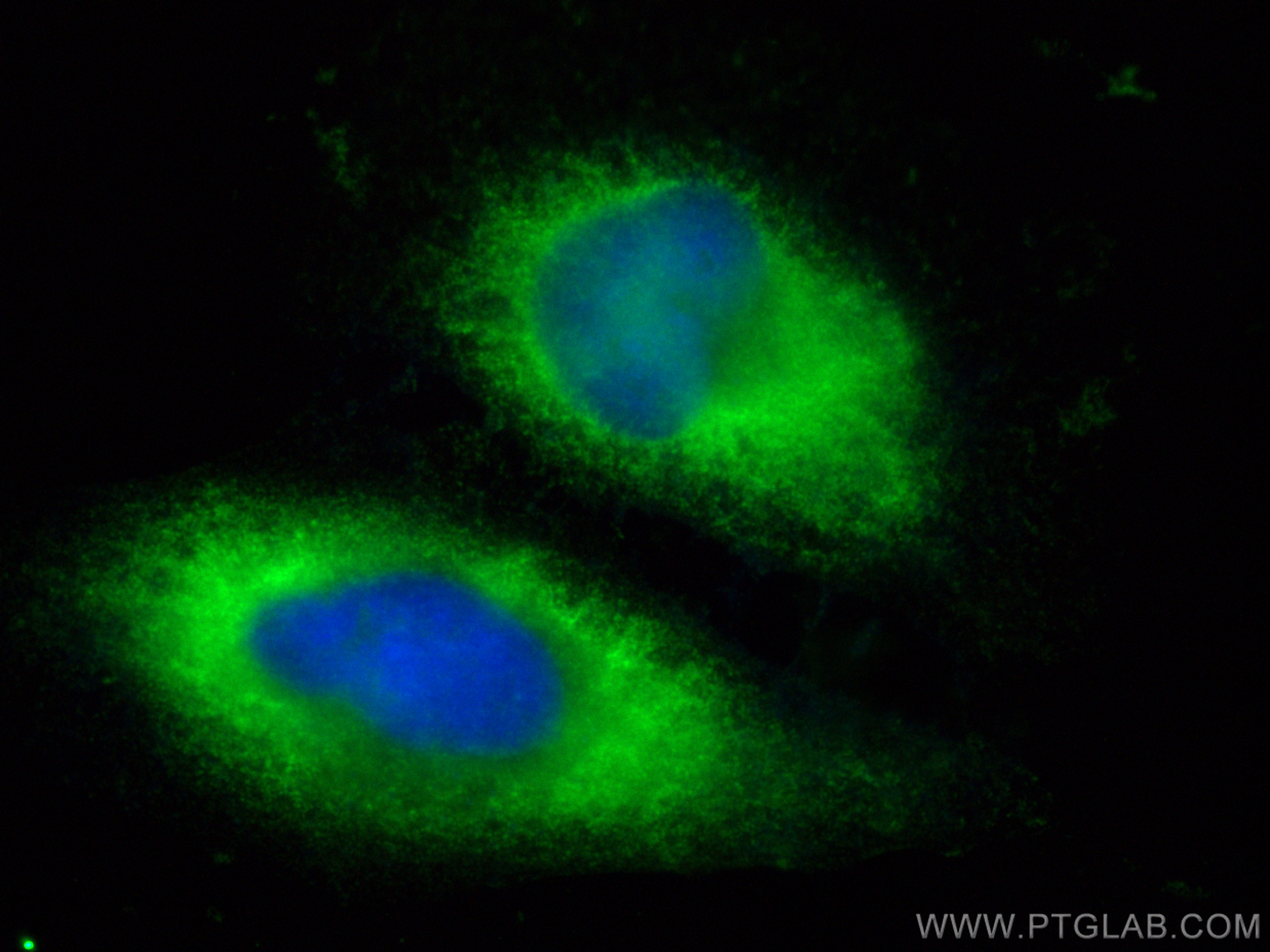验证数据展示
经过测试的应用
| Positive IF/ICC detected in | HeLa cells |
推荐稀释比
| 应用 | 推荐稀释比 |
|---|---|
| Immunofluorescence (IF)/ICC | IF/ICC : 1:50-1:500 |
| It is recommended that this reagent should be titrated in each testing system to obtain optimal results. | |
| Sample-dependent, Check data in validation data gallery. | |
产品信息
CL488-67727 targets ATG4B in IF/ICC applications and shows reactivity with human, mouse, rat samples.
| 经测试应用 | IF/ICC Application Description |
| 经测试反应性 | human, mouse, rat |
| 免疫原 | ATG4B fusion protein Ag30510 种属同源性预测 |
| 宿主/亚型 | Mouse / IgG2a |
| 抗体类别 | Monoclonal |
| 产品类型 | Antibody |
| 全称 | ATG4 autophagy related 4 homolog B (S. cerevisiae) |
| 别名 | |
| 计算分子量 | 44 kDa |
| 观测分子量 | 44 kDa |
| GenBank蛋白编号 | BC000719 |
| 基因名称 | ATG4B |
| Gene ID (NCBI) | 23192 |
| RRID | AB_3672961 |
| 偶联类型 | CoraLite® Plus 488 Fluorescent Dye |
| 最大激发/发射波长 | 493 nm / 522 nm |
| 形式 | Liquid |
| 纯化方式 | Protein A purification |
| UNIPROT ID | Q9Y4P1 |
| 储存缓冲液 | PBS with 50% glycerol, 0.05% Proclin300, 0.5% BSA , pH 7.3 |
| 储存条件 | Store at -20°C. Avoid exposure to light. Stable for one year after shipment. Aliquoting is unnecessary for -20oC storage. |
背景介绍
ATG4B(autophagy 4) is also named as APG4B, AUTL1, KIAA0943 and belongs to the peptidase C54 family. It is a homolog of yeast Apg4, a cysteine protease involved in autophagy and is a cytoplasmic enzyme. This protein is highly expressed in skeletal muscle, with lower expression in heart, liver, and pancreas and no expression is detected in fetal tissues by the northern blot. ATG4B is widely expressed in tumor cell lines (PMID:12446702). It has some isoforms produced by alternative splicing with molecular mass of 31-52 kDa.
实验方案
| Product Specific Protocols | |
|---|---|
| IF protocol for CL Plus 488 ATG4B antibody CL488-67727 | Download protocol |
| Standard Protocols | |
|---|---|
| Click here to view our Standard Protocols |
